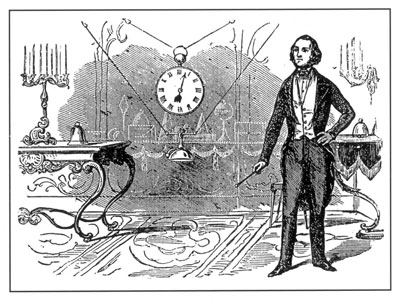For those of you interested in following along with my PhD adventure, I decided to participate in a seminar that poses a 3-Minute PhD Thesis challenge. Basically, it’s a sort of ‘sell your idea’ in 3 minutes thing. This is what I have come up with.
Tweeted Wednesday, October 27, 2010 in 140 char chunks:
In 1967, Roland Barthes wrote “the death of the author is the birth of the reader,” and with it he changed the way we understood the issue of who owned the meaning created by texts forever.
Since then, the birth of electronic text has required a re-evaluation of the way the reader participates in the meaning-making process of reading text. The editabilty, iterative and hyperlinkable qualities of electronic text have meant that even the text itself has become a fluid, dynamic thing. And the meaning we are able to make when we read changes with context, platform, associated linking and editability. Yet still, a web page was a generally a static, one-way piece of communication. You could read, and perhaps even comment, but the transaction is primarily one-way, and seldom does the reader affect the text itself.
With the rise of social media, and specifically, Twitter, the way we read, make meaning of and participate in the creation of text has changed forever. Intensely interactive, in a constant state of change, Twitter provides a platform for a new kind of fiction writing. One that is ephemeral, fleeting, interactive and, like a piece of live performance art, requires the active participation of readers in order to truly come alive.
My question is: Could the writing and reading of fiction on Twitter fundamentally change the way it is possible to engage with fictional text?
I plan to show that the way we can be readers and writers has changed forever. I plan to produce of a collection of live-written twitter fiction. Then, employing phenomenological approach of interviewing both readers and writers on their reactions to, participation in and experiences of the tweeted fiction, I plan to document the impact of this new form of fiction writing on the both the readers and the writers, with a view to challenging the very concept of what separates them in both the production of the text and the meaning-making process.


I like the idea.
I’m still not comfortable with Twitter – I have no ideas why or how I end up with a bunch of followers or what I’m supposed to do with them.
What your thesis offers is the for fiction to follow music as something that can be busked – live on the internet. It even allows for fiction as jazz, with writers jamming to produce something unique.
I understand that meaning is emergent. I’m skeptical about the role of readers as more than, say, the audience in a play.
I look forward to hearing how you will demonstrate decisive data to test the thesis.
Good luck and thanks for sharing this
I’m skeptical about it too. But a null hypothesis is as good as a proved one.
Just a bit of levity-
At least this 3 minute challenge you’re participating in doesn’t require you to choreograph it! Search “Dance your Ph.D” if you’d like to see a few young scholars trying to express their Ph.D research in dance. Of course, your topic might be a lot of fun to translate.
I still think your idea is engaging, if slippery.
How are you going to distinguish between text- the symbols on the page, and text- the experience of the reader and text- the experience of the writer? Or are you arguing that all of this collapses in Twitter? Based on your last sentence, the answer is yes. Defining that collapse without letting the components loose their identity is going to be tricky.
My understanding may be clumsy, but I can’t help thinking of Deleuze and Guattari’s A Thousand Plateaus. The basic idea I am retaining from that is that they used a variety of approaches to illustrate how our understanding of structure is in flux between order and potential; that one state will inevitably give rise to the other and that there are multiple ways of perceiving a phenomenon.
At any rate, I’m throwing that name up there because it’s a joy to read, and if you haven’t yet, you might find an opening and a critical support of your thesis in it.
You’re right on the money regarding A Thousand Plateaus.
That’s a very interesting thesis. I’m sure a lot of people will love it, lol!